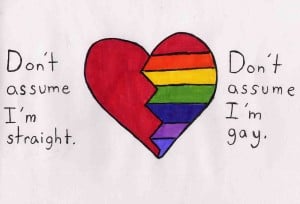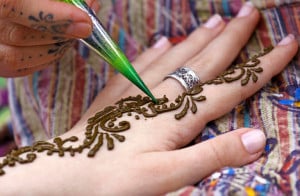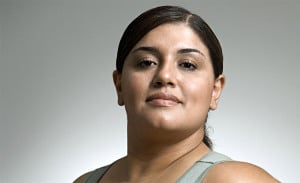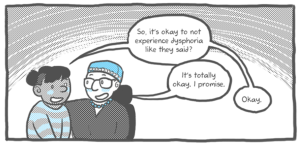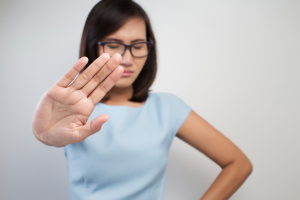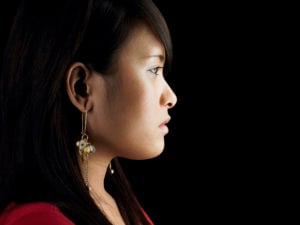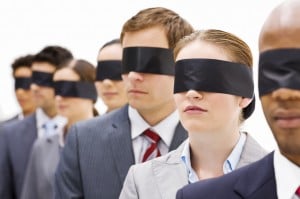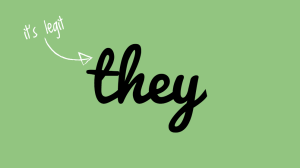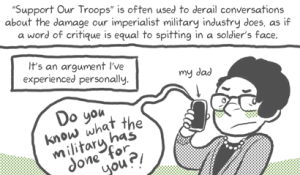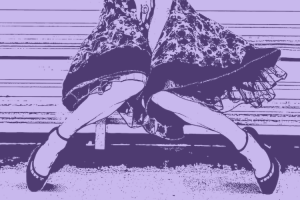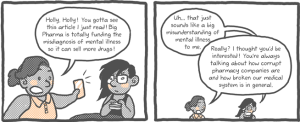Celia Edell: Hey y’all. This is another video I’m doing in a series with Everyday Feminism, which is a website dedicated to helping you break down and stand up to everyday oppression.
In this video, I wanted to discuss the pressure to have clear skin and why that’s a feminist issue. I’ve struggled with my skin for many, many, many years. I think I really started to struggle with it near the end of high school, and definitely throughout my undergrad and MA degrees. I’ve talked about my skin struggles in my past videos quite a bit. It’s something that has definitely played to my self-esteem for a long time. It was the reason that I, you know, resisted getting a high-definition camera for vlogging for so long, because I just didn’t want you all to see how bad my skin really was.
I recently finished a course of Accutane, which is a powerful and risky prescription drug that changes your oil production. And that was a last attempt to “fix” my skin. And it worked. I won’t really know if it really worked until eight months after I’m done and I just finished, but I’m thankful that it has made my skin clearer, at least right now.
But I think that I’ll always feel like the girl with persistent cystic acne, so whether my acne comes back or not, I will always deeply empathize with the struggle to get and maintain clear skin.
So I wanted to talk about why I’ve always felt so compelled to pour my money and time into skin care and why this is a feminist issue that is worth talking about.
So my first reason is that there is a lack of representation of successful people – or really anyone other than teenagers we’re meant to feel sorry for – who have acne or skin issues in the media.
So without anyone to look to in popular media, it’s incredibly easy to feel alone in your problems. It’s easy to feel like you are especially ugly. I know that I felt that way.
Acne is reserved for awkward flashbacks to teen years, of the geeky friends who are never the love interest, and never a hero of the story.
And I’ve noticed this because I so desperately wanted (and still want) people to see who look like me with my skin problems in my favorite shows and movies, but they’re simply not there.
The second reason why this is a feminist issue is that the norm surrounding skincare lead people to believe that people with acne are unclean or don’t wash their face or don’t care about their appearance, or something like that.
I swear acne commercials or TV shows in general make it seem like if you simply splash water on your face twice a day, you’ll have perfect blemish-free, pore-less skin forever.
Some people really are that lucky. I have known people to go days without washing their face and maintain perfect skin. I have tried this, like I’ve tried almost every other possible solution to acne out there, it did not turn out so good on me.
The reality is that everybody’s skin is different and acne is not actually a result of being dirty or lazy.
In my experience, people with persistent acne or skin problems are among the most diligent and clean people, because we know how sensitive our skin is, so we take incredibly good care of it. It’s not our fault that our hormones are out of whack or our oil glands are overactive or we’re stressed about school or home or work. That stuff gets to your skin.
So if you’ve never struggled with your acne than the occasional zit, it might be easy to assume that acne is a matter of cleanliness, but I can assure you that it’s not. Please stop giving me suggestions every time I walk into a store that sells any kind of skincare product. I’m aware that cell phones are dirty and have bacteria on them. I actually do wash my face, yes, that is a thing I do.
It gets very tiring and demeaning to be constantly reminded that that’s what everyone sees first when you meet them, or that everyone thinks you’re lazy or incompetent just by the fact that they see pimples on your face, so please stop doing that.
Moreover, I think that there’s a lot of classism tied to this idea that all acne is caused by what you eat. So, “If you didn’t eat sugar, or junk food, or dairy, or meat, or gluten, your skin would be so much clearer!”
First of all, not all of us have the resources and money to afford a specialized diet like that. Secondly, some people already have restrictions on their diet due to health reasons or religious reasons or something like that, or they don’t restrict their diet because they struggle with disordered eating.
There’s lots of reasons why someone’s diet might be the way that it is, so stop telling people what to eat and what to eat as if that’s going to cure everything.
It’s classist and it’s simply insensitive to assume that you know better than them, and frankly, you probably don’t.
I’ve tried a lot of those things. Cutting out certain foods, it didn’t help my skin that much. It changed it a little bit. It never fixed the root problem. So ultimately, sometimes, these things are just more complicated than that.
The third reason is that skincare is sadly tied to professionalism – and professionalism is a social construct that tell us that we need to look and act professionally in order to succeed in our society.
And when professionalism is coupled with norms and stigmas about acne and skin problems, it leads to work environments which reinforce existing social hierarchies.
So when working-class people can’t afford the ridiculous expense of skincare problems which may or may not even work, and when middle-class people have already spent ridiculous amounts of money on skincare to no avail, we are either pushed to try more, spend more, use risky drugs which I’ve done no matter the risk, or we’re left to remain uncomfortable and in many ways ostracized from the beauty norms.
And beauty norms are obviously tied to self-confidence, in that those who don’t feel beautiful according to societal norms might have a harder time feeling good about themselves in general, especially with strangers and commercials constantly reminding us of how bad our skin looks.
Low self-confidence makes it harder to go after what you want. I know that when my skin was at its worst, I had a really hard time even looking at people in the eyes. I just looked down.
I kept my face down because I didn’t want people to look at me and make comments, or even think things about my skin. So this reinforces the social hierarchies which places the rich and the beautiful according to specific norms at the top of the food chain.
The fourth reason why this is a feminist issue is that you’re damned if you do, you’re damned if you don’t.
Men and women are considered vain and shallow for caring about our skin and going to great lengths to try to clear it, but we’re also considered dirty or unkempt if we don’t go to those same lengths.
So, consider men’s skincare: Men’s acne might cause them to be bullied or feel self-conscious or even depressed, and this is due largely to the same social mechanisms that make women feel bad about our skin or look or bodies, etc.
But if you spend time and money on your skin like many of us do, you might be considered vain, just like spending money on makeup might make us superficial to some.
Skincare is considered frivolous to many people. Even my own doctor minimizes my pleas for help with my skin for a long time. Constantly, I would go to her and she’d say, “It’s not that bad. Let’s wait and see.” Or, “This might pass.” Years of that.
What you might see for fifteen minutes every few months, I have to see every morning when I wake up and all day long unless I literally avoid mirrors which I have done, because my skin has made me feel that bad.
It might not look that bad to you, but acne has serious psychological effects.
And that is the final and one of the most important reasons why I think this is a feminist issue that I think we should be talking about, is that many studies have shown that acne and depression can feed into each other.
Acne itself raises the risk of depression and suicide attempts, and this is likely due to the weight that we, as a society, are putting on appearance and how linked our appearance is to our self-esteem.
This is why we need to change the way we’re talking about acne and clear skin.
Of course, we’d like to all have clear perfect skin that doesn’t need to be washed, just aesthetically a splash of water every day or so, but that’s just not a reality of human skin. We need to stop punishing people for something that they can’t control so that we can all start accepting the skin that we’re already in.
I hope that this video is helpful because it’s an issue that’s very close to my heart. It’s something that I care very strongly about because I have struggled with acne problems for my entire adult life, and although my skin is clear right now, I feel very tied to this issue, and it’s something that I haven’t found that much comfort in the body positive movement because there’s just not that much talk about acne.
So I want us to talk about it more, and I want to feel more open. Of course, it’s good to tell each other what we’ve tried or what might work, but also just to support each other and say, “You can be beautiful even if you have pimples, and we are more than just our flesh layer, and if we can all just shed ourselves out of our skin suits, we would all be happier.”
But we can’t do that, so let’s work on accepting it and becoming less concerned with each other’s skin.
Okay, I hope this was helpful, and I’ll see you all next time.





